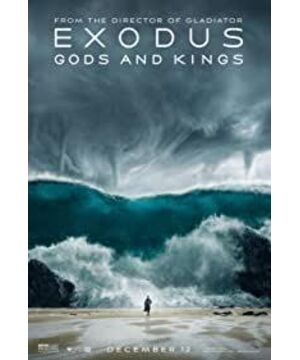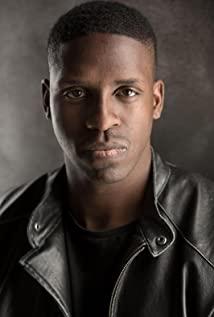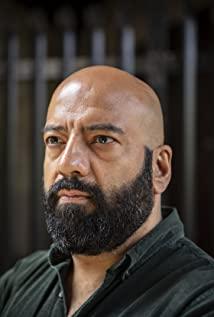Liao Kang's
film "The Ten Commandments" became a classic in 1956 and is broadcast on TV every year. The heroic image of Moses has long been ingrained in people's minds: Charlton Heston's tall, strong body and angular face look like a statue of Michelangelo walking down the temple, giving the impression of leading the Hebrews out of Egypt , who walked out of slavery, walked through the desert of the Red Sea, walked through hardships and hardships, and walked toward the paradise of freedom must be like that. Ramses II, played by Yul Brynner, is also universally recognized as an Egyptian pharaoh, and his piercing eyes and arrogant demeanor are unforgettable. Not to mention that the epic story itself has the most intense contradictions, the most dramatic plot, the greatest character transformation, the most motivating emotion; it's a good movie script straight from the box, and The Ten Commandments is basically Copy the Exodus from the Old Testament. It's certainly not difficult to remake this well-known story and use modern film technology to surpass the visual effects of "The Ten Commandments", but who is likely to surpass the two stars Heston and Brynner? Director Ridley Scott obviously did not try to go beyond this. His film "Exodus: Gods and Kings" did not copy the relevant chapters of the "Old Testament", but made miracles as natural phenomena as possible , he created the image of Moses as an ordinary man. Only then, maybe a remake of the story is worth watching? But it is precisely because of this that the film will not have the charm of "The Ten Commandments" to the public.
"Exodus - Pharaohs and the Gods" initially shows the palace of Egypt, which is extremely magnificent, in stark contrast to the toiling of Hebrew slaves in the quarry. A battle scene that was not in the original book was added: horse battles, chariot battles, and foot battles are all quite spectacular. It is worthy of directing "Gladiator". At the same time, Moses' status and ability, as well as his life-and-death friendship with Ramses, were also shown in this battle, which confirmed the prophecy that "the leader will be rescued, and the savior will lead". However, the Moses of this film is not portrayed as a prophet and a god-man. Christian Bale plays Moses, a man of average stature and appearance, which is hardly comparable to Charlton Heston. He also did not have the firm belief of Moses in the "Old Testament". He was just an ordinary person. In adversity, he acted out of conscience as a last resort. Moses could have shown his inner conflict when he learned of his life, but the film barely touches on the writing. After Moses was exiled and went to Midian to marry a wife and have children, why did he return to Egypt to rescue his compatriots? There is not enough explanation. The transformation of Moses and Ramses from comrades to rivals is not as fully displayed as in the Ten Commandments.
These deficiencies make "Exodus - Pharaohs and the Gods" thin. Believers can take Moses' actions as following God's commands, it goes without saying. But a movie is an independent art after all, and it needs to be justified. And this movie is trying to get rid of the divinity, showing Moses as a mortal. In the "Old Testament", Moses went to Mount Horeb and had a dialogue with God who appeared as a "burning bush". In the film, it was filmed that he hit a mudslide and was dizzy talking to a boy by the bonfire. Rather than saying that the boy was God, he was an angel or a spokesman for God, or the personification of Moses' conscience. In the eyes of Moses' wife, the so-called dialogue with God was simply that he was fainting. Dealing with Moses' appointment in this way will surely make devout believers dissatisfied. Afterwards, Moses had many conversations with the boy, which can be interpreted as talking to himself and conscience, or it can be interpreted as a direct conversation with God in heaven. In any case, it is extremely disrespectful to many believers to represent God or his spokesperson in this way. Moses' doubts and arguments seem inevitable to ordinary people, but to the believers it is a falsification of the Old Testament. No wonder some have called for a boycott of the film.
What made them even more dissatisfied was that after Moses returned to Egypt, he even started an armed struggle, the effect of which was only that Ramses kept hanging the suspects. Even if Moses had been a general who was accustomed to war, the newly armed slaves had limited fighting power. The Hebrews had to rely on divine power to force the Egyptian Pharaoh to let go. But the movie showed the ten punishments recorded in the Bible as natural disasters, and also asked the Egyptians to make a reasonable explanation, explaining that they had nothing to do with God, so there was no need to fear the Hebrews. When Ramses' beloved son died, Moses even told him that the Hebrews also lost their children. This literally sucks the Passover from Judaism. And the biggest miracle—the Red Sea—reluctantly manifests itself as a natural phenomenon: tsunamis caused by undersea earthquakes, ebb and flow of water that is almost empty, huge waves caused by tornadoes, and so on. Not to mention that the version of the Ten Commandments was chiseled by Moses himself on Mount Sinai in the movie. I really don't know how Jews and Christians who believe in the "Old Testament" will scold them? The movie box office and reviews are not that high, and it is not difficult to understand.
Director Ridley Scott is an atheist. Obviously, he wanted to use the film to faithfully reproduce history—his imaginary history, or rather his interpretation of the “Exodus” recorded in the Old Testament. But I see hesitation in his interpretation: he seems to be undecided, whether to abandon the legendary miracles, treat them as natural phenomena, and make a reasonable explanation for them; Half-covered let the boy represent God. Of course, that can also be seen as Moses asking himself questions. But his conscience could not have the magic power to let disaster come to Egypt, and it is even less likely to let the Egyptians' father and son die. That boy still represents God. This indecision of the director made me feel at a loss. What are you going to show? Are the ten disasters a miracle or a natural disaster? Since he's gone to great lengths to make the audience see that the disasters ahead could all be natural disasters, why not try to make the last one more realistic? In fact, since he does not believe in miracles, and has already added a lot of content to the story of Egypt that is not in the original text, why should he follow the "Old Testament" and reproduce those miracles one by one? Even priests often interpret those miracles as fables, so why should a movie keep pace with it and be stretched to reproduce it? The boy, in particular, was very unpleasantly employed. His face is not good, his speech is inappropriate, God is not God, and man is not human. I really don't understand why the director didn't choose a good-looking boy or a weather-beaten old man to clearly represent Moses' conscience and talk to him from time to time. Since the director has already denied most miracles with cinematic techniques, why not simply deny it to the end?
There are such flaws in a big production costing 140 million, it makes me wonder if I fully understand this movie, have I missed something? While looking up articles related to "Exodus - Pharaohs and the Gods," I saw that there was also a director-cut four-hour version of the gigantic production, and the performance version was less than two and a half hours long. Maybe the answer is in another version? In any case, the film is completely different from The Ten Commandments, featuring a mortal Moses. It also tries to go to myth and reproduce history. So worth a look.
December 21, 2014
View more about Exodus: Gods and Kings reviews











